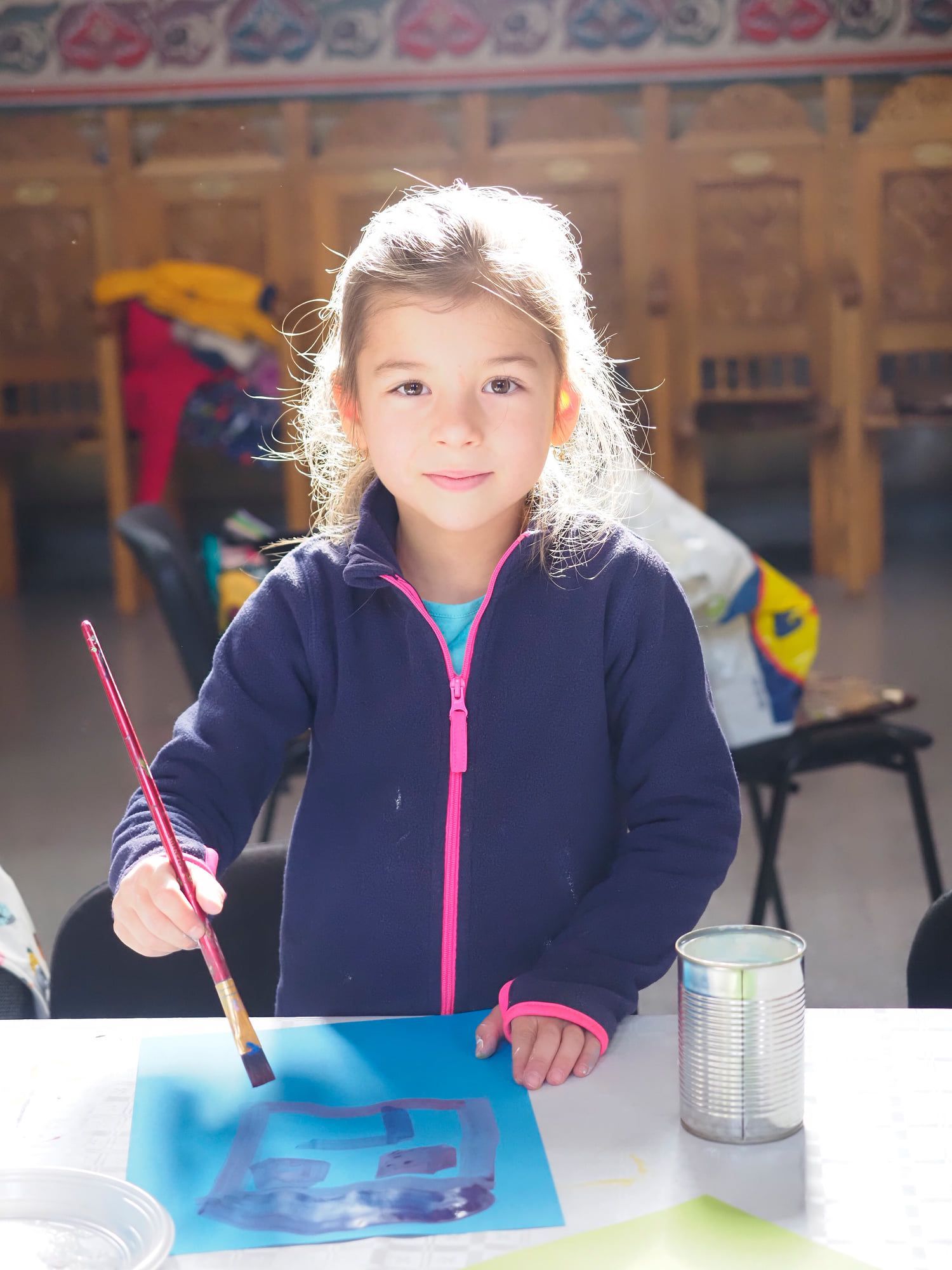“Unfortunate Students of War”: Arming Refugee Children with Art
Sarah Kornfeld profiles Nicoleta Zagura, founder of the Bucharest-based project “Art 4 Ukraine.”
By Sarah KornfeldJuly 24, 2022

“Children of war tell the truth. Here, on the edge of so much violence, we have come to see how apprenticeship is an act of intervention,” Nicoleta Zagura, founder of the Bucharest-based project Art 4 Ukraine, told me over WhatsApp the first week of July. It has been an harrowing few months, and Zagura speaks to me after securing homes in Germany, Holland, France, South Korea, Azerbaijan, and Mexico for Ukrainian refugee children and families. She tells me she is concerned for their longterm psychological wellbeing, yet at least she has been able to arm them with art.

Developed by European artists and child activists, Art 4 Ukraine is based on the shared experience of trauma in the Eastern and Central European region. In 2016, Zagura started a program called Artistic Education for Heritage with her Ukrainian collaborator, Kata Rudakova, focused on bringing arts education through apprenticeship to orphaned children in Romania. In 2022, the program evolved into Art 4 Ukraine, with the original group of 2016 apprentices acting as peer teachers to Ukrainian refugee children. Together they collaborate on art that explores cultural inclusion. The program, housed in the Mogosoaia Palace Museum in Moldova, a UNESCO World Heritage Site, draws on Zagura’s long experience. She has taught art for 20 years and is the author of books on pedagogy, and art history.
The project is comprised of three parts: in-person, hands-on arts programs that explore the children’s sense of place, the images share despite their diverse backgrounds, and art history programs about regional connections; in partnership with local arts organizations, the children exhibit artwork in museums, galleries, and other public spaces. The experience of having their vision accepted and appreciated by a wide, diverse audience is is a crucial element of healing. With time, the participants “level-up” from apprentices to peer teachers to other children, helping them to learn the local languages, but also the international language of art.

Bright-eyed and globally-minded, Zagura maintains that empathy is the driver of her program. The idea is to train children in creative practice, give them a sense of place when the world may view them as outsiders, while also preparing them for life in cultural practice. Ideally, the non-verbal practice of art serves as a boundary-less meeting place where children can feel free to express deep emotions while also illustrating their hopes for the future, especially in the context of war. “Children are the unfortunate students of war,” Zagura notes, “but they are really our teachers about a new language for intercultural dialogue, inclusion, and peace.”
While the drive to aid Ukraine has largely been focused on providing arms, housing, and medical aid, Zagura has doubled down on culture. Participants are taught to focus on the bonds and connections between Ukraine and its neighbors, rather than simply on trauma, and that includes shared art, food, and music. Zagura herself grew up in Chernivtsi, Ukraine, and is profoundly attuned to the Ukrainian traditions that these refugees cherish. “We make Borscht and Shuba with them,” she says, “and this is an art form unto itself. The children find healing in the familiar, but it is the fact that we share this love, have empathy for the culture they fear they are losing — this is a crucial element in teaching them the power of culture and art.”

As a member of the UNESCO community (she is a curator and educator working globally within UNESCO), Zagura has made sure to integrate historical monuments into the program, awakening these “artefacts” to serve as shelters for children today. This summer, the program has moved to Transylvania to be in residence in four locations — Predeal, Brasov, Harman, and Prejmer (UNESCO World Heritage Sites) — and will once again take 130 refugees from Ukraine, supported by past apprentices. Zagura believes that their program can grow to serve the people of the Middle East and other regions affected by refugee crises.
Zagura ends our conversation quietly, but clearly, “Art is a modality of expression for our deepest feelings and secret thoughts. And this instrument of expression supports the structure of our humanity. Art is the testimony of future generations, and right now we need to study the beauty of our past, one that feels like it is disappearing. Doing this allows us to focus on what is most important: love, empathy, and the hope for a better future.”

Photographs by Cristian Macovei.
LARB Contributor
Sarah Kornfeld is the founder of Rising Partners, a consultancy for art and the creative economy based in San Francisco and Rome. Kornfeld’s recent book, THE TRUE, was published out of Bucharest, Romania, in 2021 and launched at the National Theater Festival of Romania, as well as LibFest in Bucharest.
Did you know LARB is a reader-supported nonprofit?
LARB publishes daily without a paywall as part of our mission to make rigorous, incisive, and engaging writing on every aspect of literature, culture, and the arts freely accessible to the public. Help us continue this work with your tax-deductible donation today!